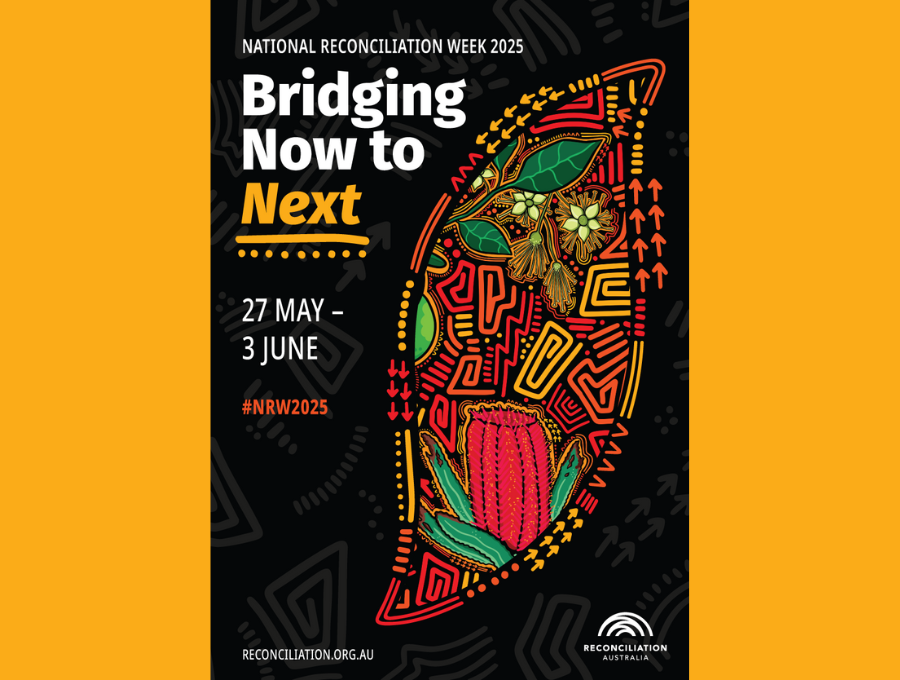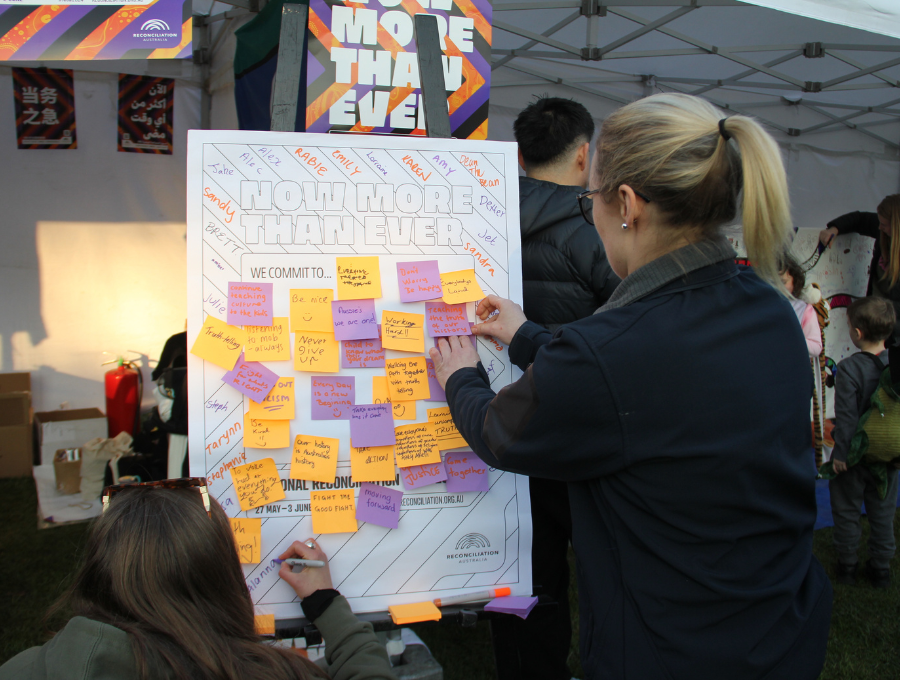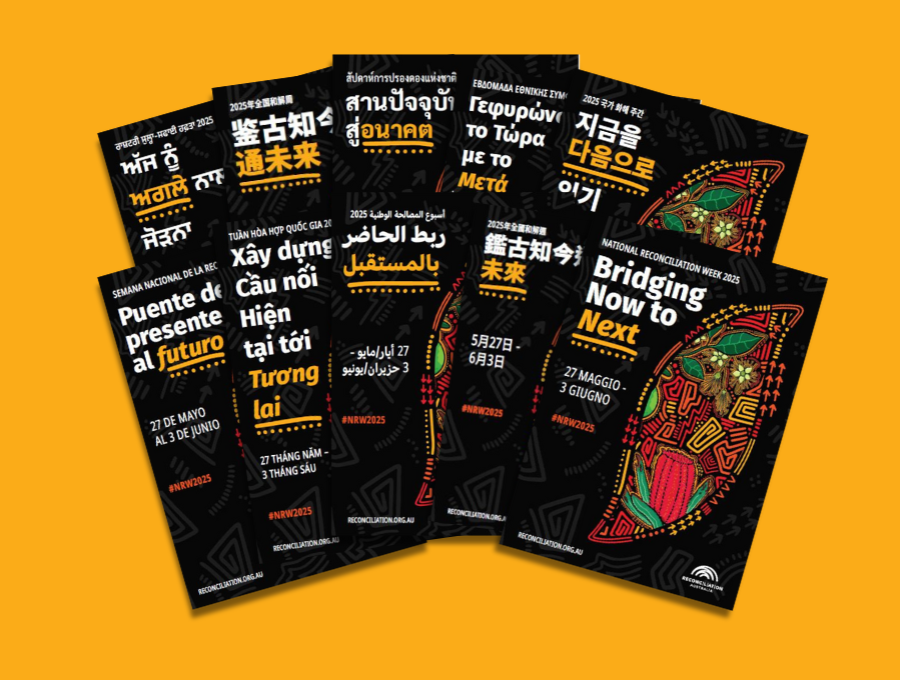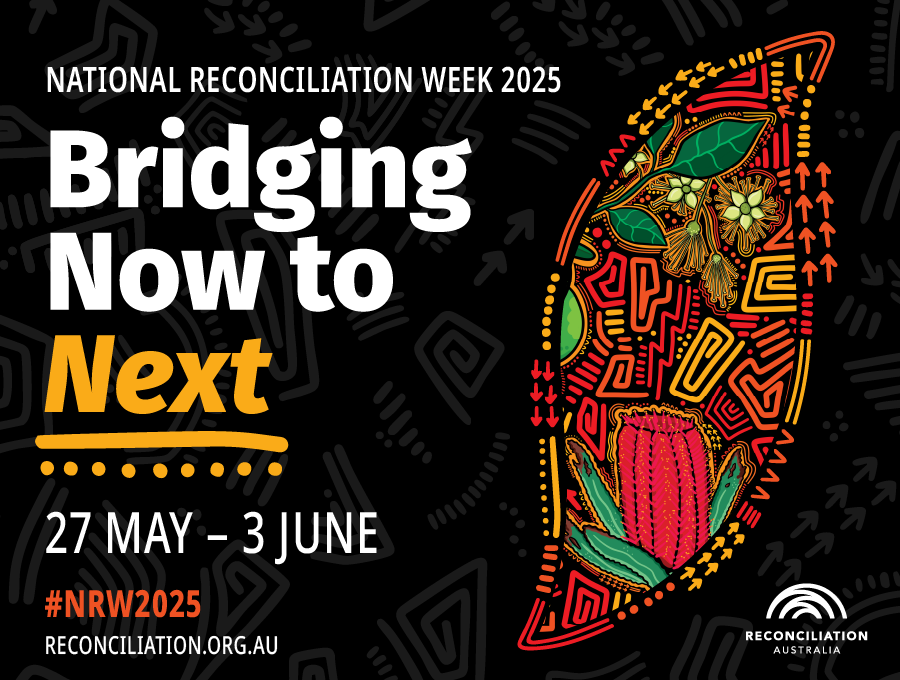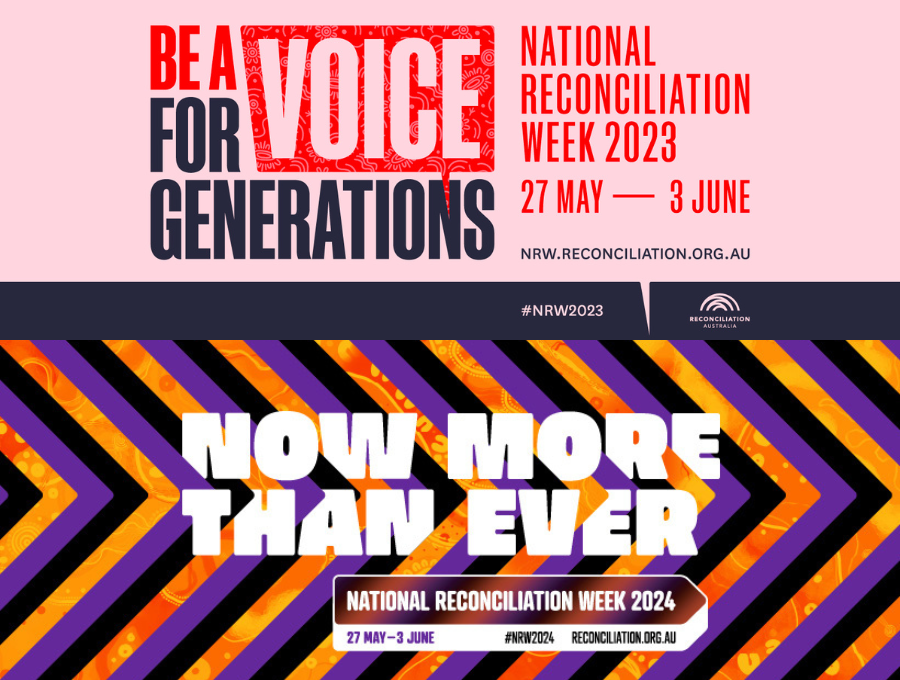National Reconciliation Week (NRW) is a time for all Australians to learn about our shared histories, cultures, and achievements, and to explore how each of us can contribute to achieving reconciliation in Australia.
Bridging Now to Next #NRW2025
Posters, banners, social tiles, colouring-in sheets, t-shirts and other files for use at home, work and school.
Submit your own public NRW event so supporters can find it and attend – or register a private event it it’s invite only.
Resources and translated information on National Reconciliation Week in 10 key community languages.
Raise your Voices for Reconciliation
Choirs and singing groups from across the country are invited to raise your voices in support of reconciliation.
The song this year is iconic Australian anthem Solid Rock, written by Shane Howard.
About the theme
The National Reconciliation Week (NRW) 2025 theme, Bridging Now to Next, reflects the ongoing connection between past, present and future.
At a time when Australia faces uncertainty in its reconciliation journey, this theme calls on all Australians to step forward together.
Bridging Now to Next urges us to look ahead and continue the push forward as past lessons guide us.
In the #NRW2025 theme artwork created by Kalkadoon woman Bree Buttenshaw, native plants − which are known for regenerating after fire and thriving through adversity − symbolise our collective strength and the possibilities of renewal. This is a time for growth, reflection, and commitment to walking together.
Australia’s history of reconciliation is not a linear one, we have made great strides and experienced disappointing setbacks.
Twenty-five years ago, Corroboree 2000 brought together Aboriginal and Torres Strait Islander and non-Indigenous leaders in a historic call for reconciliation. We continue that work in 2025, inviting all Australians to join us in Bridging Now to Next – building a more united and respectful nation.
Read more about this year’s theme #BridgingNowtoNext
Check out the Translated Resources page for posters, colouring-in sheets and information about National Reconciliation Week, the 2025 theme and the reconciliation process in ten key languages other than English spoken in Australian homes.
What is National Reconciliation Week?
The dates for NRW remain the same each year; 27 May to 3 June. These dates commemorate two significant milestones in the reconciliation journey – the successful 1967 referendum, and the High Court Mabo decision respectively.
Reconciliation must live in the hearts, minds and actions of all Australians as we move forward, creating a nation strengthened by respectful relationships between the wider Australian community, and Aboriginal and Torres Strait Islander peoples.
We all have a role to play when it comes to reconciliation, and in playing our part we collectively build relationships and communities that value Aboriginal and Torres Strait Islander peoples, histories, cultures, and futures.
A brief history
National Reconciliation Week (NRW) started as the Week of Prayer for Reconciliation in 1993 (the International Year of the World’s Indigenous Peoples) and was supported by Australia’s major faith communities.
In 1996, the Council for Aboriginal Reconciliation launched Australia’s first National Reconciliation Week.
In 2001, Reconciliation Australia was established to continue to provide national leadership on reconciliation.
In the same year, approximately 300,000 people walked across Sydney Harbour Bridge as part of National Reconciliation Week-and subsequently across bridges in cities and towns-to show their support for reconciliation.
Today, National Reconciliation Week is celebrated in workplaces, schools and early learning services, community organisations and groups, and by individuals Australia-wide.

